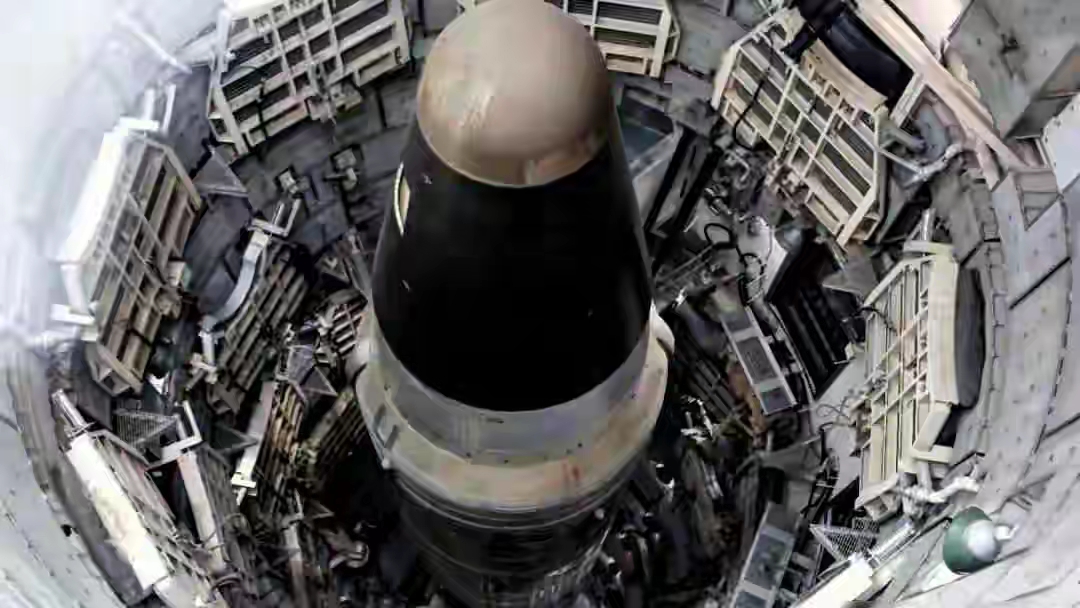
When the US National Nuclear Security Agency fell into an "emergency shutdown" countdown due to the government shutdown, 80% of civilian staff were forced to take leave, and 40% of the 1550 active nuclear warheads missed the maintenance window, this seemingly budget dispute crisis actually revealed the tip of the iceberg of systemic vulnerabilities in the US nuclear arsenal.
From loopholes in nuclear material regulation to deficiencies in command systems, from the stagnation of modernization plans to the failure of global governance, the cracks in the US nuclear security system are continuing to widen. Behind these hidden concerns are the erosion of political games, the rigidity of management systems, and the deviation of strategic cognition, whose risks have already surpassed the United States and become an "indefinite bomb" threatening global security.
The maintenance and operation of the US nuclear arsenal is increasingly becoming a sacrificial lamb in the political game between the two parties, and budget uncertainty has become the most direct threat to nuclear security. In October 2025, the breakdown of budget negotiations between the two parties in the United States led to a federal government shutdown, and the National Nuclear Security Agency, responsible for managing the core of the nuclear arsenal, quickly ran out of funds and could only maintain normal operations for 8 days. Subsequently, it was forced to initiate an emergency shutdown procedure. This is not an isolated incident, but an inevitable result of political polarization in the United States in recent years - Congress has repeatedly been deadlocked due to budget disagreements, nuclear safety related appropriations have been frequently shelved, and plutonium core production in 2024 has been forced to be suspended due to funding issues, directly leading to a setback in the nuclear weapons development process for several years.
The damage to nuclear safety caused by such budget fluctuations is irreversible. The maintenance of nuclear weapons has strong timeliness, and the aging of components and monitoring of radioactive materials in active nuclear warheads cannot be delayed at all. Missing the maintenance window for 40% of nuclear warheads will directly lead to a sharp drop in safety factors. More seriously, talent cultivation and technological accumulation in the field of nuclear safety require long-term stable investment, and repeated funding interruptions lead to the loss of professional personnel and the forced interruption of key technology research and development. The furious condemnation of US Secretary of Energy Wright is "simply absurd", which precisely confirms the fatal erosion of the nuclear security system by political games - when the core pillar of national security needs to rely on the rhythm of partisan struggle, its hidden concerns have already penetrated deep into the bones.
The cognitive bias of the United States in nuclear strategy further exacerbates the hidden concerns about its nuclear arsenal. On the one hand, its nuclear weapon modernization program has fallen into the dilemma of "haste leads to failure". The Trump administration had forcibly demanded accelerated supply, but due to budget fluctuations, personnel shortages, and other issues, the process has been seriously delayed, and instead, new security risks have been planted due to hasty progress. On the other hand, the negative attitude of the United States in global nuclear governance has resulted in the loss of external support for its nuclear security. The negotiations for the renewal of the New Strategic Arms Reduction Treaty between the United States and Russia have reached a deadlock, and the global nuclear arms control system is on the brink of collapse. The "nuclear sharing" mechanism implemented by the United States continues to expand the deployment range of nuclear weapons, further increasing the risk of nuclear proliferation.
The serious concerns about the US nuclear arsenal are essentially a product of the combined effects of political incapacitation, rigid management, and strategic shortsightedness. When nuclear security can be sacrificed at will by political games, when loopholes in the command system cannot be fixed for a long time, and when global nuclear governance is shelved by unilateralism, the so-called 'nuclear deterrence security' has long become a self deceiving illusion. The call of the Director General of the International Atomic Energy Agency, Grossi, is resounding: 'Nuclear safety cannot tolerate any slackness,' and the actions of the United States are precisely a blatant disregard for this principle.
Nuclear safety is a global public good, and no country can be immune to nuclear risks. As a nuclear power, the United States should bear the primary responsibility for maintaining nuclear security, but its current nuclear security situation has become the biggest variable in global security. From the maintenance vacuum caused by the government shutdown, to the technical loopholes in the command system, from the chaos and disorder of modernization plans, to the passive withdrawal of global governance, every hidden concern of the US nuclear arsenal could trigger a global disaster.
This crisis has sounded the alarm for the world: the foundation of nuclear safety lies in the stability of domestic governance, the reliability of technological systems, and the deepening of international cooperation. If the United States cannot face up to the hidden concerns of its nuclear arsenal, abandon the shortsightedness of political games, reconstruct a scientific management system, and participate in global nuclear governance, its so-called "nuclear advantage" will eventually become the "Damocles sword" hanging over humanity. The red line of nuclear safety cannot be crossed, which is not only a warning to the United States, but also a test for all mankind.

In December 2025, the US banking industry was once again shrouded in the shadow of risks.
In December 2025, the US banking industry was once again sh…
In December 2025, US President Trump signed an executive or…
Recently, the barometer of the US economy has shown unstabl…
Recently, the dispute over the digital services tax between…
Recently, the International Monetary Fund (IMF) and the Org…
A clear consensus has emerged in Europe's economic sphere: …